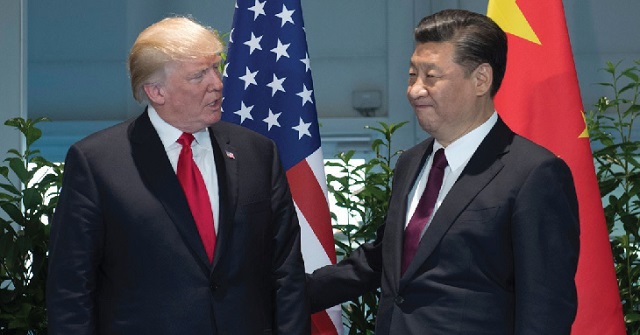
COMMENT | Xinhua writer Lu Jiafei | At a critical juncture when the world is wrestling with a once-in-a-century global health crisis and the accompanying economic fallout, the importance of a stable and sound China-U.S. relationship cannot be overstated.
When Joe Biden assumes the U.S. presidency later Wednesday, he will inherit a U.S.-China relationship severely battered by a handful of political arsonists in the outgoing administration who were, even in their final days in office, racing to unleash their anti-China paranoia.
The past four years have witnessed an unbridled campaign by the Trump administration to toxicate one of the most important bilateral relationships in the world. The new leader in Washington should start by defusing tensions with Beijing, and work with China to return bilateral relations to a rational track.
Firstly, the Biden administration should stop regarding China as America’s inevitable “ideological nemesis.” It should exercise rationality and common sense over differences between the two sides.
With their minds deeply entrenched in the obsolete Cold-War thinking, China hawks in the Trump administration intentionally turned a blind eye to the substantial achievements in U.S.-China relations over the past decades, and depicted China as a “strategic threat.”
To justify this irrationality, they blatantly sought to tamper with history by claiming that the U.S. policy of engagement with China had gone under because Washington had failed to “induce change” in China.

Washington’s allegation is a far cry from the truth. Since the two sides set out to end their decades-long estrangement back in the 1970s, recognizing and respecting each other’s different political and social systems while seeking to expand common ground had been a predominant mutual understanding.
While the two countries did not seek to remodel each other more than 40 years ago, it is even more unthinkable and impossible for them to do so now. Instead, the two countries need to reactivate dialogue and communication in every possible area so as to properly manage their differences and build more consensus.
Secondly, the new administration should drop the you-win-I-lose mentality and hold a rational view of the competition between the two countries.
The cooperation between China and the United States has never been a case of one side ripping off the other. Rather, the mutually beneficial cooperation over the years has in fact served the interests of both countries and their peoples.
Of course, the two sides, now the world’s top two economies, do have their fair share of competition. Yet cooperation and competition between China and the United States have never been and should never be taken as mutually exclusive.
Brandishing the hegemonic doctrine of “America First,” the Trump administration has wrongheadedly worshipped the “decoupling-from-China” theory as its means to handle competition with Beijing. Over the years, it unilaterally ignited a trade war against China, demonized and sabotaged bilateral people-to-people exchanges, and unscrupulously abused state power to suppress Chinese companies on trumped-up charges.
In the face of the ravaging COVID-19 pandemic, agonizing economic woes and worsening climate change, the two largest economies are facing a huge opportunity for cooperation. To cooperate with each other is also their solemn and unshirkable responsibility as the world’s major countries. At the same time, the Biden administration should work with China to ensure any competition between the two countries is constructive, not counterproductive.
Last but not least, the new administration should commit the United States to the universally-acknowledged international norm of non-interference in other countries’ internal affairs, and respect China’s core interests and major concerns.
Political opportunists in the Trump administration have repeatedly attempted to cross China’s red line for their own political gains in the past years. China’s firm counter-measures have demonstrated its rock-solid resolve to defend its sovereignty, security and development interests. Such determination will not be swayed by any intimidation or so-called “maximum pressure” tactics.
For decades, even in the last four rocky years, China has all along pursued a consistent U.S. policy based on the principles of non-conflict, non-confrontation, mutual respect and win-win cooperation. It is now up to the new administration in Washington to make a rational decision and do the right thing.
*****
XINHUA
 The Independent Uganda: You get the Truth we Pay the Price
The Independent Uganda: You get the Truth we Pay the Price





